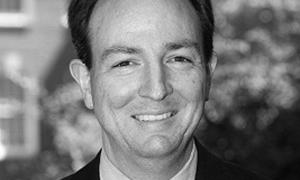Despite America’s deep divisions, our political, intellectual, and media elites seem to agree on at least one thing: that the Department of Justice should be “independent” of the president.
Democrats accuse President Trump of wrongly “interfering” in the investigation of General Michael Flynn. Republicans broadcast their suspicions that President Obama was really calling the shots on the Clinton e-mail investigation, the Trump-Russia investigation, or both. Both sides concur, then, that there is something wrong with a president trying to direct or influence the activities of the Justice Department.
This consensus represents an understandable reaction to the trauma of Watergate. In that infamous scandal, President Nixon sought to impede a criminal investigation. Nixon clearly acted on self-serving political motives, and he ended up being driven from office.
Although understandable, this belief in the necessary independence of the Department of Justice is also false. It is contrary to the Constitution, and it dangerously deviates from the Founders’ understanding of the executive power that the Constitution was designed to embody.
The Constitution could hardly be more clear that the president is the nation’s chief law enforcement officer. As Justice Antonin Scalia, dissenting alone, reminded a wayward Supreme Court in Morrison v. Olson (1988), law enforcement — the investigation and prosecution of crimes — is an executive function, and the Constitution vests “the executive power” in the president alone. The Constitution also charges the president with the duty to “take care that the laws be faithfully executed” — an obligation he obviously could not perform if his subordinate law-enforcement officials were to be somehow “independent” of his authority.
The Constitution thus establishes a unitary executive, an office in which the executive power is entrusted to a single person. The reasons behind this arrangement are explained by Alexander Hamilton in Federalist 70. And those reasons remain cogent today.
Unity, Hamilton contended, is essential to an executive power that is both properly energetic and properly “responsible” to the people. The Constitution places the executive power in the hands of a single person because it is easier for a single person to act with “decision” and “dispatch.” Good government presupposes an energetic execution of the laws, and such energy in turn depends upon the unity of the executive power.
Moreover, the executive power is placed in one set of hands because it is easier for the voters to hold one person accountable for the exercise of the executive power. Thus, according to Hamilton, key constitutional principles — such as energetic government and republican self-government — depend upon the unitary executive.
Hamilton accordingly warns against the dangers of a plural executive. A plural executive cannot energetically enforce the laws, because of the potential for disagreement and lack of cooperation among those who hold the executive power. And a plural executive cannot be effectively held accountable to the people, because a shared authority allows for a deflection of blame that confuses the public.
This returns us to the contemporary problem. The much-praised idea of the independence of the Justice Department tends, to the extent that it prevails, to set up — contrary to the Constitution and the thinking that informed it — a plural executive. It gives us a president generally responsible for the execution of the laws, and, at the same time, an attorney general, controlling the vast powers of the Department of Justice, who does not have to submit to presidential direction.
Such an arrangement carries with it today all the dangers of which Hamilton warned two centuries ago. It is obvious that an energetic execution of the laws — either with a view to national security or to the prosecution of crime — requires the close cooperation of the Department of Justice with other executive branch departments. Such cooperation cannot be guaranteed, however, unless all of these departments have a common superior to direct their actions.
Similarly, if the Justice Department is independent of the president, there can be no accountability to the people for the exercise of its powers. Here the problem is actually worse than that identified by Hamilton. He worried about the evasion of responsibility that could occur among executive officers answerable to the people. The contemporary view, however, sets up the attorney general — an unelected official — as the highest law enforcement authority. The only way the Justice Department can be disciplined by the kind of “responsibility” to the people that self-government requires is if it can be directed by the only elected executive branch official, the president.
It is important not just to learn any lesson from Watergate but to learn the right lesson. The proper response to a president who abuses his authority over the Department of Justice is to get him out of office — through an election, impeachment, or a forced resignation. It is not to diminish the authority of the presidency itself, and in so doing to undermine the Constitution.
This piece originally appeared in The Hill on 03/02/18



